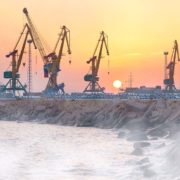Archive | Economics RSS feed for this section
Economics, Governance and public sector management, Health, Private sector development
 Economics, Energy, Governance and public sector management, Health, Social development and protection
Economics, Energy, Governance and public sector management, Health, Social development and protection
 Economics, Environment, Finance sector development, Governance and public sector management
Economics, Environment, Finance sector development, Governance and public sector management
 Economics, Environment, Finance sector development, Governance and public sector management
Economics, Environment, Finance sector development, Governance and public sector management
 Economics, Finance sector development, Industry and trade, Information and Communications Technology
Economics, Finance sector development, Industry and trade, Information and Communications Technology
 Economics, Environment, Information and Communications Technology, Infrastructure, Social development and protection, Urban development
Economics, Environment, Information and Communications Technology, Infrastructure, Social development and protection, Urban development
 Climate change, Economics, Energy
Climate change, Economics, Energy
 Economics, Infrastructure, Social development and protection, Transport
Economics, Infrastructure, Social development and protection, Transport
 Climate change, Economics, Environment
Climate change, Economics, Environment
 Economics, Industry and trade, Subjects, Transport
Economics, Industry and trade, Subjects, Transport

Fight for survival: Indonesia’s hard-hit small informal firms struggle to outlast the pandemic

A critical challenge in achieving inclusive growth is to formalize informal firms and non-contract-based employees.
Measuring the impacts of COVID-19 in Central Asia

The COVID-19 outbreak has had wide-ranging impacts on the economies of Central Asia, with uncertainty and protective policy measures contributing to falling demand and supply.
Supporting blue skies through green development loans

Close collaboration, innovative project design, and technical and management capacity building have supported green development and air quality improvement by the People’s Republic of China (PRC) and the Asian Development Bank (ADB).
Central banks lead the way on green monetary policy

Central banks are becoming increasingly aware of the importance of considering climate change risks, such as physical and transition risks, and some have already launched monetary policy initiatives within the mandate of price stability.
Harnessing digitalization on the path to sustainable economic development in Asia

Digitalization is helping to transform economies by enhancing economy-wide competitiveness and productivity, with trade being an important channel. The use of big data and the emergence of online platforms have further bolstered the progression of the digital economy, particularly in Asia.
Levelling up innovation in Asia

Innovation is playing a vital role in the economic, social, and environmental progress of Asia and the Pacific and has been an important factor in the region's rapid and successful transformation. However, many countries in the region lag behind, innovating at a fraction of the pace as countries in similar or even lower income groups.
Carbon pricing’s potential to reduce emissions in Australia offers lessons for Asia

The COP26 summit in Glasgow in November 2021 brought the global community together to accelerate action toward meeting the goals of the Paris Agreement and the United Nations Framework Convention on Climate Change (UNFCCC). However, achieving these goals will not be possible without effective carbon pricing.
Balancing the Spillover Effects of High-Speed Rail Infrastructure Investment in Asia

Comprehensive infrastructure projects have proven to be efficient in reducing poverty, community burdens, and production costs and raising competitiveness within and between regions. However, investment in specific forms of infrastructure can help balance the trade-offs between huge infrastructure demand and scarce financial resources, especially in developing countries.
After COP26, developing Asia’s challenge is meeting ambitious climate commitments

Developing Asian countries, such as Indonesia, Kazakhstan, Thailand, and Viet Nam, have announced their net-zero carbon emission targets by mid-century at the United Nations Climate Change Conference (COP26) in Glasgow, Scotland, and financing climate change mitigation has been at the forefront of discussions for making ambitious climate action a reality.
Infrastructure investment key to unlocking emerging Asia-Europe trade corridor

Spanning from the People’s Republic of China through Central Asian countries along the Caspian Sea to Europe, the Trans-Caspian Corridor is an increasingly important channel for transportation and cross-border trade. Considerable financing gaps and other challenges must be addressed to meet its rapidly expanding infrastructure needs.


Search
Subscribe / Connect to Asia Pathways
Subjects
- Accelerating Progress in Gender Equality
- Addressing Remaining Poverty and Reducing Inequality
- Agriculture and natural resources
- Capacity development
- Climate change
- Economics
- Education
- Energy
- Environment
- Finance and Innovation
- Finance sector development
- Gender
- Globalization and Economic Stability
- Governance and public sector management
- Health
- Human Capital Development for Inclusive Growth and Shared Prosperity
- Industry and trade
- Information and Communications Technology
- Infrastructure
- Making Cities More Livable
- Miscellaneous
- Population
- Poverty
- Private sector development
- Regional cooperation and integration
- Sanitation
- Social development and protection
- Strengthening Governance and Institutional Capacity
- Subjects
- Transport
- Uncategorized
- Urban development
- Video Blog
- Water
Recent Posts
- The Promise and Perils of Mother Tongue-Based Education
- From Crisis to Resilience: The Evolution of the Banking Sector in Asia and the Pacific
- Tariffs on the Table: What Could Be Asia’s Next Move?
- Investing in Childcare a Win for Women and the Economy
- Flush and Flourish: Upgraded Toilets Can Transform Lives in Rural Asia




Recent Comments